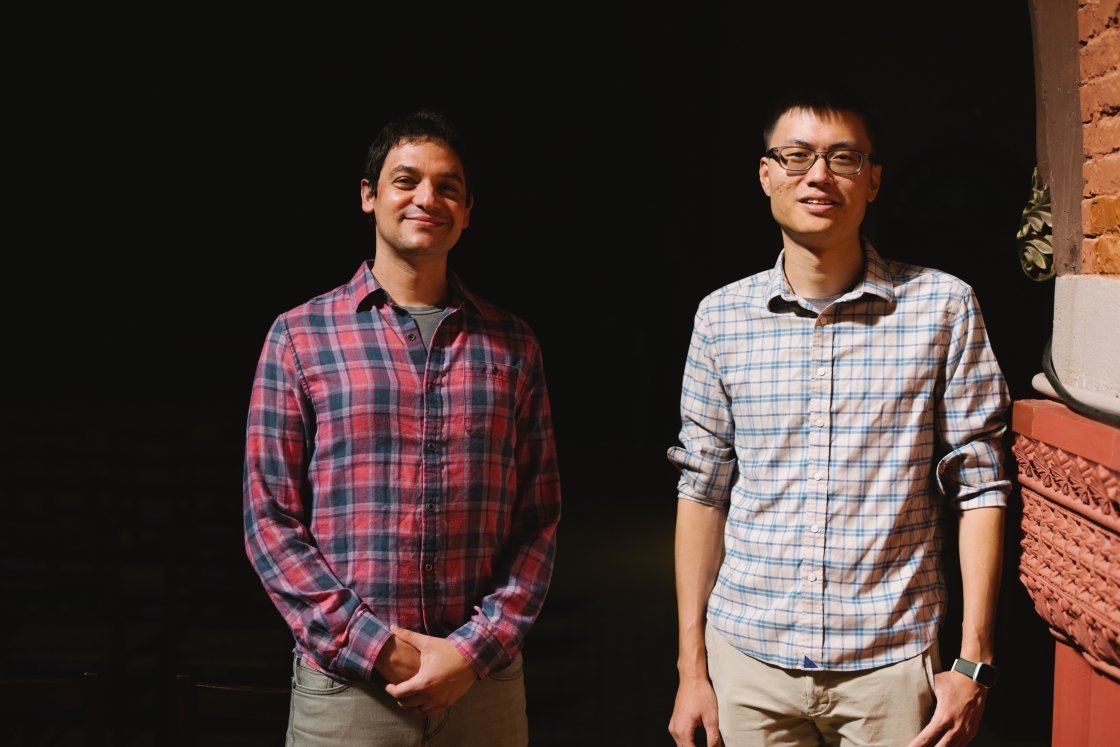December 10, 2018 – Ultraprecise clocks, scales and thermometers that exploit the principles of quantum mechanics are vulnerable to classical and quantum noise that can reduce their performance. However, noise that is intrinsically quantum-mechanical – like vibrations within molecular systems – can be particularly harmful, according to a Dartmouth College study.
The research, published as a “Rapid Communication” in Physical Review A, provides the first model that describes how entanglement due to quantum noise can hamper precision measurement systems.
Image  |
Famously dubbed “spooky action at a distance” by Albert Einstein, the theory of quantum entanglement suggests that particles can be interconnected at some physical level even when separated by extreme distances. This connection does not rely on the transmission of information through physical waves. Rather, simply knowing specific information about one particle can provide definitive information about another.
The phenomenon of quantum entanglement – that independent objects are reliably connected – can be helpful in the design of measurement and sensing devices. Such devices, like the next generation of atomic clocks, rely on the correlations that exist in entangled quantum systems to provide levels of precision that cannot be attained through classical methods.
“Despite its often counter-intuitive features, quantum mechanics arguably remains the most successful scientific theory ever developed,” said Lorenza Viola, a professor of physics at Dartmouth that led the research team. “Not only does quantum physics provide us the tools for predicting and explaining an endless variety of physical phenomena with exquisite accuracy, but, combined with control engineering, it is enabling revolutionary advances in computing, communications, and sensing.”
Quantum systems must be completely isolated from their environment to operate at the highest levels of accuracy. But sensing devices always interact with their surroundings, making it difficult to avoid noise from both classical sources, such as electric or magnetic fields, or quantum sources arising from the device itself, like the vibrations of ions.
The Dartmouth research focuses on Ramsey interferometry, a technique that senses tiny frequency changes to make measurements. Such small shifts in frequency can indicate changes in the magnetic fields, forces, or amplitudes of vibration of atoms or ions that serve as the foundation of precision devices.
While entanglement has the potential to increase the sensitivity of measurement tools, the Dartmouth study shows that quantum noise can sneak into the sensing system, causing unwanted entanglement that reduces precision.
“We decided to keep noise quantum and see where it led us,” said Félix Beaudoin, a postdoctoral associate at Dartmouth and first author of the paper. “It was surprising to see that the quantum devices can perform worse than their classical counterparts when quantum noise is present.”
Up until now, theoretical studies have only addressed the classical effects of noise in quantum systems used for precision sensing. The Dartmouth research extends the analysis to fully quantum mechanical noise models.
“Quantum noise is present in many systems with applications in both sensing and quantum information processing,” said Leigh Norris, a postdoctoral associate at Dartmouth that co-wrote the study. “Our findings highlight the need to better understand this source of noise, since it has the potential to reverse the advantages rendered by the quantum mechanical nature of these systems.”
Precision measurement has led to major advances in telecommunications, healthcare, transportation and computing. As researchers look to further improve technologies ranging from diagnostic health scanning to next-generation satellite-based global positioning systems, the Dartmouth team says that quantum measuring devices must be further understood and that novel solutions will be required to counter the effects of noise.

